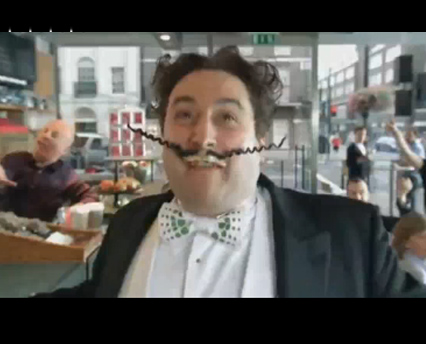Go Compare
The first time I went to Italy I was staying out in the Tuscany countryside, and being interested in bird watching, was surprised by how quiet the Italian countryside is. In Britain we’re used to a constant background sound of birds, in town gardens as well as in the woods or by the sea. In Tuscany it was common to hear the sound of guns in the distance and the fruits of their labours turned up on the restaurant menus, though I never saw larks’ tongues or blackbird pie! But every year thousands of small brown birds are shot in Italy and Greece, many of them en route for northern Europe. To me, it seems barbaric and ignorant, and here, the shooting of eagles or birds of prey will find its way into the newspapers, as well as the theft of eggs. The RSPB has over a million members, and it seems obvious now to protect bird life and cherish it. Yes, there are still plenty of people who like to shoot birds here, but we have civilised laws that stop them from wiping out whole species as has happened before.

I was watching the TV the other night and hating that stupid Dove moisturiser ad ‘I’m a man!’ using the William Tell overture as music. Really, there is no way anyone can listen to the William Tell overture now and access what it was originally intended to say. I am old enough to still think of the Lone Ranger when I hear it, but it has officially become a joke piece. If you hear the whole overture you can still dimly perceive some unique meaning, but unless you care you’re unlikely to know that Rossini did a cutting edge thing – made a political statement even -by introducing Italian folk music into classical opera. There are quite a few pieces of classical music now that have more or less lost their depth of meaning – whole chunks of Carmen and Tchaikovsky, the Hallelujah chorus and Zadok the Priest, and most sadly, the tenor voice, which is drip drip drip being turned into a joke voice by the media and pop music. Viz the Go Compare ad. On telly at the moment you have The Queen of the Night aria advertising Haribo sweets, the humming chorus from Madame Butterfly for Asda (why??) and the Barber Adagio over or under a burnt Warburton’s loaf. More and more classical music is being seen as a virtually free resource in a costly industry. Want to have a poignant moment in a historical drama? Stick in Nimrod. Want a noble patriotic tune? Why not have the big tune from Holst’s Jupiter. Stick in a bit of classical music just to give something the aura of sophistication. Or, frighteningly, to make a joke of culture. The trouble is, this music may come free in financial terms, but the cost is enormous. A piece of classical music is not owned by anyone (however much they may try), but is a work of art for the individual to experience in their own way. By attaching it to an image, especially the trashy images of advertising, you devalue, even debase the vocabulary of the music, and make it virtually impossible for anyone to have an individual experience of it without the image of a loaf of bread or a chocolate bar popping up. The piece of music with all its unique meaning, is lost to that person, even to a generation. Like the bird world, there are always plenty of people happy to savage and despoil without thought, either from idiotic and meaningless self indulgence, or from simple greed. Like the birds, once you protect them, it seems an obvious thing to do, and impossible to live without.
I think it is time to list classical music in the same way that buildings are listed. I really believe that it should not be possible to use classical music for commercial purposes. I would make it (if I ruled the world) illegal to use listed music for ads, for films, for any kind of background or commercial music. I think it needs time to recover, and I think people need to see its value and that the classical music world values it. Of course, you can knock a building down and it is gone, and I remember the shock of seeing that happen in a way that it could not now happen. A piece of music cannot be knocked down in that way, but its possibilities, deep and unfathomable, can be taken away from you for your lifetime, for no more reason than that somebody wants to make more money from their product. As a child, I used to laugh with the rest of my family at the Hamlet cigar ads, which used, famously, the Air on a G string, by Bach. Even the title of the piece made us laugh. Now it makes me almost want to cry that I cannot listen to this music, this spiritual music, without thinking of those ads. Nobody can give me back the clear head space I need to hear this music in a fresh way. In some terrible way, the music has been murdered.
